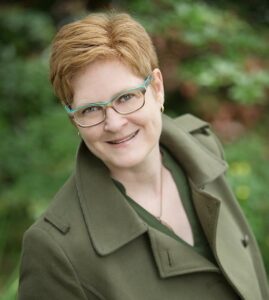 Yolanda, a pharmacist who has been diagnosed with MS and blogs at The Patient RPh(Pharmacist) has written this brilliant guest post:
Yolanda, a pharmacist who has been diagnosed with MS and blogs at The Patient RPh(Pharmacist) has written this brilliant guest post:
As pharmacists, we learn about medication and non-medication (non-pharm) treatment. Non-pharm treatments include the important but elusive category of “lifestyle modifications”. While I am in favor of non-pharm treatments, I cringe every time I hear one of my students say that are going to tell a patient to do “lifestyle modifications”. Why? I find that students think that lifestyle modifications are the same for every person, are easy to do, and that a patient will automatically know what you are talking about. So, when students would recommend “lifestyle modifications”, I ask “which lifestyle modifications would you like the patient to make?” Usually, they weren’t sure.
When I was diagnosed with MS, my doctor told me that I needed to make what lifestyle modifications. My pharmacy brain went into high gear thinking about ways I could change my lifestyle so that I could keep symptoms at bay and preserve my energy. My patient brain…not so much. I could hear my patient brain saying “wait, I have to change my life even more? I don’t need to make any more changes. What lifestyle modifications do you make with MS anyway?” At the moment, neither brain was listening to the other.
Then I remembered what I asked my pharmacy students. “Which lifestyle modification would you like the patient to make?” To truly answer this, the student would have to talk to the patient to learn about their lifestyle. After this, they could work with the patient to tailor lifestyle modifications to the patient’s life. I realized had to do this to myself.
Now, I didn’t have a verbal conversation with myself (but if you did, no judgement here!), but I did think about my current lifestyle practices and asked if they helped to keep my MS symptoms at bay or if it preserved my energy. I learned that my current lifestyle practices were pretty good, but I could benefit from some small adjustments. For example, I know that getting enough sleep is important for me. My sleep habits were ok, but could be better. Therefore, my first lifestyle modification was to set a 9pm bedtime and to get 8 hours of sleep every night, including weekends. Another lifestyle modification I made was with my diet. I realized that while it was already pretty healthy, it could benefit from more vegetables. So, lifestyle modification #2, add more vegetables in my diet.
As you can see, “lifestyle modifications” is not a term that means the same for everyone. My pharmacy brain knew that, and my patient brain realized that “lifestyle modifications” can be manageable. Have you been told to make “lifestyle modifications”? If so, which ones have you made?

 The last 20 months have been the hardest and most painful in my life.
The last 20 months have been the hardest and most painful in my life. This is guest blog post by Jen DeTracey. She runs the wonderful blog,
This is guest blog post by Jen DeTracey. She runs the wonderful blog,  MS crashed into our lives in 2011, just as The Teenager was starting High School.
MS crashed into our lives in 2011, just as The Teenager was starting High School. As we are slowly coming out of this strange time, have I learned anything?
As we are slowly coming out of this strange time, have I learned anything?